Classical / Opera: An Overview
Whilst all singing is based on the same basic principles of vocal production, each style requires a slightly different technique to create the sound associated with the musical style.
Classical singing is often most commonly associated with Opera, but there are actually quite a few different styles of classical singing depending on what type of music or repertoire you want to sing. Each different area of classical singing requires a slightly different vocal sound and understanding of the musical style, but they are all broadly based on the same technical principles of vocal production which focus on creating a sound that is ‘even’ from top to bottom. This means that you can’t tell when you have changed from one part or register of the voice into another. Classical repertoire often requires you to sing in different languages, so being able to sing in German, French and Italian is also important.
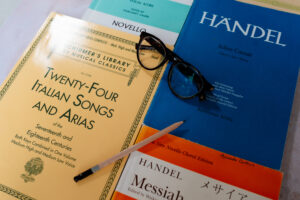
There are four main areas of classical singing – don’t feel that you have to stick to just one area – during your training in particular you will be encouraged to explore all of them and most classical singers do a bit of everything, especially when they are starting out:
Concert singing – This style of classical singing focuses on performing the repertoire of Western Art Song including Lieder (German), Chansons (French), English and Italian Song. This is a fairly static style of singing – there’s not much moving around – and it’s usually performed on stage (often in a concert or recital hall eg the Wigmore Hall in London) with a piano accompaniment.
Oratorio – Whilst Oratorios are similar to Operas (see below) in that they are large-scale pieces of music with chorus, soloists and orchestral accompaniment, the demands of the music itself requires a slightly different technique. In order to sing the fast runs and ornamentation that are a feature of the oratorio style a lighter, more flexible sound is generally required – this is often associated with a vocal sound with less vibrato.
Choral Singing – The UK is particularly well-known for it’s choral singing tradition and it is another important area of classical singing to be aware of. Choral singing requires you to be able to blend with other singers and to have strong music reading and sight reading skills. Blending with other singers, good music and sight-reading skills. The technique required is broadly the same as that of oratorio singing. The traditional UK style of choral singing style has developed from its roots in the choirs of medieval monastic foundations and can still be heard in many large cathedrals today, many of which are professional.
Opera – Operatic singing requires a range of skills in addition to a specific vocal technique required in order for the singer to be heard over a full orchestra. An opera is essentially a drama set to music (similar to musical theatre), made up of vocal pieces with orchestral accompaniment, and so acting and movement skills are a bonus.

London
BMus (Hons) 4 years full time
Entry Requirements
2 A Levels (Pass A-E) or equivalent plus audition.
Application Deadline
3 October 2022 (for September 2023 Entry)
Course Description
The BMus programme is centred around world-leading one-to-one tuition for performers, composers and electronic musicians. Its principal aim is to develop your ability as a practical musician. At least two-thirds of the programme is focused on your Principal Study.
A minimum of 30 individual lessons a year with our renowned professorial staff are combined with over 100 hours a year of departmental classes, workshops, coaching, and projects with high profile artists, as well as opportunities to perform in some of the country’s finest venues.
From the start, you will be treated like a professional, and given the support and encouragement you need to prepare for the industry. You will establish contacts and gain exposure through our partnership organisations such as the Barbican, London Symphony Orchestra and the BBC Symphony Orchestra. A Joint Principal Study pathway is also available.
Individual Singing Lessons
Yes
How can I audition?
Both live and recorded online audition submissions are available, however live auditions are strongly encouraged
Recorded auditions are available for those who cannot attend live auditions.
Audition Requirements
You should prepare:
- Three contrasting pieces of your own choice (which may include musical theatre). All pieces must be sung from memory.
- A short poem or piece of prose.
A short piece of sight-singing may also be given, and the audition may include a short interview.
You should prepare three items in contrasting styles and moods, one of which must demonstrate vocal agility. One item should include a recitative if possible. One item must be sung in a language foreign to you.
You may decide which piece to start with. The panel will then choose what else to hear from your selection. Auditions will be recorded for internal use only.
Undergraduates may be asked to take some aural skills assessments consisting of a sight-singing test and some of the following:
- singing the middle notes in a chord
- identification of intervals
- sight reading of rhythms
- sight reading of two simultaneous different rhythms, to be sung and clapped.
Applicants will receive confirmation of their audition date and arrival time. Candidates should be available for 1 hour 45 minutes from the point of arrival. This timeframe includes a short rehearsal with the staff pianist, your performance itself (usually up to 10 minutes), call back for interview if required, and waiting time.
Audition Dates
Live auditions are normally held in November and December
Tuition Fees (2023-2024)
Home Students, Full Time: £9,250
Overseas Students, Full Time: £24,970
Audition Fee
£114
Application Route
Direct via GUILDHALL APPLICATION PORTAL
NB Applications are not accepted through UCAS for Guildhall applications as they use their own applications system.
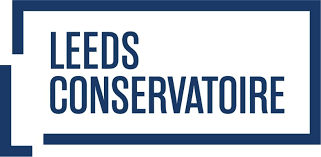
Leeds Conservatoire
Leeds
BA (Hons) Music (Classical) 3 Years full-time or 4 Years full-time with a foundation year.
A Number of combined Honours Study paths are also available see further information
Entry Requirements
Academic Entry Requirements:
96 UCAS tariff points from Level 3 studies or equivalent, which normally include A Level Music or a BTEC Extended Diploma in a Music-related subject.
A minimum of three GCSEs including English Language at Grade C / Grade 4 or above or equivalent international qualification, e.g. IELTS 6.0 (5.5 in each component).
Other Entry Requirements: Performers are expected to demonstrate at audition a playing/singing standard of Grade 8 (commensurate with ABRSM, London College of Music, Trinity College, Rock School (as appropriate for the pathway)).
Applicants’ understanding of applied music theory will be assessed at audition where they will be asked questions about the theoretical elements of the pieces they have played to ensure that they are suitable for the course.
Application Deadline
Monday 3 October 2022
Course Description
We believe that being a classical musician today involves mastery of technique, creative application of theory and adaptability – making you at home in any musical context. Our Classical programme is for talented performers and composers who want to break the boundaries of classical music whilst honing and mastering advanced techniques.
You will develop as a performer through one-to-one tuition throughout your studies, as well as broaden your understanding and knowledge, giving you the opportunity to define classical music for the next generation.
Our conservatoire education is characterised by inspirational training with experts in your specialism, all supported by bespoke workshops and masterclasses by high-level visiting musicians.
There are many opportunities for collaboration, such as working with our Production students in the studios, lending your talents to live scores for our Film Music students, playing in the pit band with Musical Theatre students or performing with students from our Pop, Folk and Songwriting pathways.
Yes
How you can Audition
You can audition either live in person at Leeds Conservatoire or via a recorded online submission.
Audition Requirements
BA (Hons) Music (Classical)
Live, In-Person Audition Requirements:
1. Perform two contrasting pieces that demonstrate your musical strengths: The pieces should be of grade 8 standard and contrasting in style – aim to show us what you can do technically and expressively.
At least one of your chosen pieces should have piano accompaniment. Accompanists are provided for you on the day, though if you want to bring your own you can request this by emailing http://[email protected].
2. Sight-read a short piece of music, which will be given to you on the day: You will have the opportunity to look at this in your 30-minute warm up time.
3. We will ask you to play or sing some scales or technical exercises as appropriate to your instrument and level.
4. You will have a short interview, where we will ask you about your general musical knowledge and interests
Recorded online Submission:
Please provide video recordings of:
1. Performances Video performances of TWO pieces that are contrasting in style and that demonstrate your musical strengths. Aim to show us what you can do technically and expressively. The pieces should be of Grade 8 standard *.
Please introduce each piece by giving only the title and composer.
We would prefer for at least one of your pieces to be recorded with piano accompaniment, if this is possible. Where this is not possible and works that would normally have accompaniment are performed solo, passages of accompaniment lasting more than two bars should be cut, taking a short break rather than counting all your bars’ rests.
* For applicants who are applying for the BA (Hons) Music (Classical) with Foundation Year, the pieces should be of at least Grade 6 standard.
2. Spoken Voice: To help us to assess your spoken voice, please include a video performance of you reading a short text in English. You may choose your own text of poetry or prose; aim for it to be around one to two minutes in length.
3. Music Theory: To help us assess your music theory knowledge, submit a video recording of you responding to the following question:
Identify and describe THREE interesting features of one of your audition pieces (these can be harmonic, rhythmic, melodic, or any other aspect that interests you).
4. Interview: • Submit a short video with your answers to the following questions (please speak directly to the camera as if to an audition panel).
- Why are you interested in studying at Leeds Conservatoire?
- What do you believe you would bring to the conservatoire?
- What sort of repertoire do you like singing?
- Are there any historical periods or styles that you feel suited to and why?
- What do you feel are your strengths as a singer?
- Which aspects would you like to improve most?
- Tell us about any experience that you have of singing in choirs or any other ensembles that you have performed in/with.
- Do you have any favourite performers that you like to listen to? Why do you like their singing?
Further useful Information on Auditions at Leeds Conservatoire can be found HERE
Audition Dates
In person auditions will take place between 24 October and 12 December 2022.
NB Information on Leeds Conservatoire website states that if there are no in person audition dates left at the time of your application then you will only be able to audition online.
Tuition Fees (2023-2024)
Home Students, Full Time: £9,250 per year
Overseas Students, Full Time: £18,300 per year
Application Fee (2023)
There is no audition fee for Leeds Conservatoire.
An application fee of £26.50 is payable to UCAS Conservatoires.
Application Route
Apply via UCAS CONSERVATOIRES
Institution Code: L30. Course Code BA (Hons) Classical: 305F
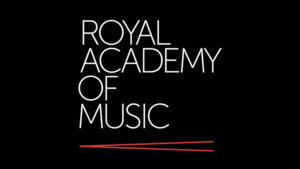
Royal Academy of Music
Location
Marylebone Rd, London NW1 5HT
Course
BMus (Hons) – 4 years full-time
Entry Requirements
For the Bachelor’s degree at the Academy, there are both musical and academic entry requirements, which are listed below.
Musical requirements
For all applications, we require evidence of professional performing potential in your principal study, sound general musicianship and a good aural response.
You do not need to have taken any formal practical music examinations. But, as a guide, we expect students to meet the level of at least either:
- Grade 8 or DipABRSM in Associated Board of the Royal Schools of Music (ABRSM) examinations
or
- Grade 8 or Associate Diploma (ATCL) in Trinity College London examinations
If you are not taking Music as a subject in your school exams, we recommend gaining knowledge of Music Theory at Grade 6 level (ABRSM or Trinity College London) before you commence your studies with us. There are many free online resources for this.
If your Principal Study is not a keyboard instrument, there is no formal minimum entry standard in keyboard skills. However, ABRSM or Trinity College London Grade 5 minimum (or equivalent) in piano is desirable, to enable you to improve your general musicianship.
Academic Requirements
2 A Levels (Pass A-E) or equivalent
Course Description
The BMus provides a solid foundation for a career in music, whether you’d like to be a performer, composer, teacher or to work in another related field.
Core Elements of the BMus
- Principal studyThis is the focal point of your musical development and includes individual lessons as well as a combination of masterclasses, performance classes, chamber music, concerts and everything else you do in your specialism. The focus for performers is on gaining experience in public concerts.
- Artist developmentWe offer a wide range of activities, events and modules for you to hone your skills in studio recording and editing techniques, self-promotion and marketing, writing CVs, making funding applications, understanding the music business and working in arts management.You can also get involved in Open Academy, which has an active programme aimed at helping people in the community. If you want to develop your teaching skills, you can study for the Academy’s teaching licence (LRAM), too.
- Academic studyAcademic study is essential to your creative and intellectual development. Core modules in Aural, Analysis and History reinforce your awareness as a listener, develop your interpretative abilities and extend your knowledge and imagination.
Individual Singing Lessons?
Yes
Audition Requirements
For the BMus programme you should prepare THREE items in contrasting styles and moods, one of which must demonstrate vocal agility.
One item should include a recitative if possible.
One item must be sung in a language foreign to you.
You may be asked to have a subsequent interview with one of the undergraduate academic staff, during which you can discuss your study plans and may be asked some questions about a short extract of music, and be asked to take some aural skills assessments consisting of a sight-singing test and some of the following:
- singing the middle notes in a chord
- identification of intervals
- sight reading of rhythms
- sight reading of two simultaneous different rhythms, to be sung and clapped.
How can I audition?
Live in-person in London
Recorded video audition upload available for those unable to attend live auditions.
More details about auditions at the Royal Academy of Music, including audition advice, can be found in the link below:
https://www.ram.ac.uk/study/audition/what-to-expect
Audition Fees
£100 plus £27 UCAS application fee
Audition Dates
Tuition Fees (Full-Time)
Home (UK) Students: £9,250 per year
Overseas (International) Students: £27,300 per year
Course Code – BMus (Hons) 302F
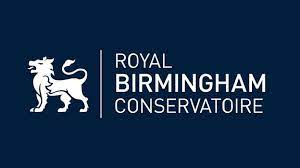
Royal Birmingham Conservatoire
Location
200 Jennens Rd, Birmingham B4 7XR
Course
BMus(Hons) – 4 years full-time
Entry Requirements
Minimum of 5 GCSE’s at grade C/4 or above one of which MUST include English Language
PLUS 32 UCAS points –
Course Description
BMus (Hons) Course Structure
Years one to three
We concentrate on providing you with a thorough grounding in technical and performance/ composition skills, alongside contextual studies, musicianship and professional development activities such as conducting, pedagogy and community music. Each year, you have more choice and opportunities to specialise in your studies.
Professional development is embedded into our core modules, which focus on self-awareness, understanding your strengths and weakness, goal setting and self-motivation.
The Conservatoire participates in a number of exchange schemes with European and US Conservatoires. Provided that you achieve the appropriate levels of skills, you will be encouraged to spend a semester of year three at a partner institution.
Year 4
You will effectively design your own curriculum based on your career aspirations. You will be assessed on performance, composition or music technology (as appropriate) and design your own final project in any area of music you wish. You will take one or more additional modules in professional development, pedagogy or other specialist areas.
Individual Singing Lessons?
Yes
How can I audition?
You can audition live at the Royal Birmingham Conservatoire or via a recorded video submission.
Information and guidelines on auditions can be found HERE
Audition Fees
£75 for a single instrument audition
£105 for double instrument audition
PLUS £27 UCAS Conservatoire application fee.
Audition Requirements
Applicants will be required to demonstrate general musical knowledge and musicianship skills, including harmony and aural.
Please perform three classical songs or arias from memory.
At least one of these should be in a language other than English or Latin.
You may choose the first item and the panel will choose the second and, if they wish, the third.
You may also be given a short piece to prepare which you will be asked to sing to the panel.
During your audition we may invite you to participate in a short vocal workshop where we will work with you on a piece from your audition repertoire. This will be an informal opportunity for us to get to know you better as a singer and performer.
As part of your audition there will be an informal interview. The panel will be interested to hear you talk about your artistic influences, your inspiration to be a musician and your career objectives.
This is also an opportunity for you to ask the panel questions about your Department and what life will be like as a musician in Birmingham.
Audition Dates
November
Tuition Fees
Home (UK) Students: £9,250 per year
Overseas (International) Students: tbc
How do I apply?

Royal College of Music
Location
Prince Consort Rd, South Kensington, London SW7 2BS
Course
BMus (Hons)
Course Length
Full-Time: 4 Years
Entry Requirements
Performance Audition
All offers for performers are made on the basis of their performance at audition ‘\in addition to the following Academic Entry Requirements:
- Two A Levels at grade E or above, or
- One A Level at grade E or above and two AS Levels (in different subjects from the A level), one at grade D or above and one at grade E or above
Most UK applicants will take A Level music or equivalent and achieve a Grade A or B. If you are choosing your subjects now, we recommend that you choose music if possible.
Alternative qualifications which are accepted instead of A Levels include:
- Three Scottish Higher grade passes at grade D or above
- Cambridge Pre-U certificate in at least two principal subjects at P3 level or above
- BTEC Level 3 National Diploma (formerly BTEC Level 3 Diploma)
- International Baccalaureate Diploma (at least 24 points)
- Welsh Baccalaureate (accepted as equivalent to one A Level)
- RSL Level 3 Diploma for Music Practitioners
If your academic qualifications are not listed here, you are welcome to contact our Admissions team to discuss your suitability for the course.
Course Description
The Bachelor of Music (BMus) programme is a flexible four-year degree with a focus on principal study, alongside faculty activities and a mix of core and optional courses.
A unique feature of the BMus (Hons) is that, as you progress through your four years at the RCM, discovering strengths about yourself and your practice, the flexibility of our programme allows you to shape your degree to suit your aspirations. Throughout your studies you will not only have the opportunity to develop your skills further in performance or composition, but also to focus on other areas that interest you.
Individual Singing Lessons?
Yes
Audition Requirements
You should prepare three contrasting pieces including one in English and one in Italian. One piece must be an operatic or oratorio aria (with recitative if possible).
Whilst vocal training at the Royal College of Music is based on classical repertoire, they will accept a maximum of one piece of musical theatre if this offers a particular insight in your potential as a performer.
Pieces selected from popular music repertoire will not be considered for the purpose of this audition.
The audition panel reserves the right to select only two of the three prepared works.
Audition Format
Live or recorded options available
Application Route
Institution Code: R56. Course Code: 300F
Fees
UK: £9,250
International: £27,300
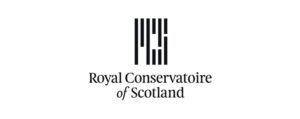
Royal Conservatoire of Scotland
Glasgow
BMus Vocal Performance (Hons) 4 years full time
Entry Requirements
- Scottish Highers — 3 passes (grade C or above)
- A Levels — 2 passes
- International Baccalaureate — minimum score of 24 with 3 subjects at Higher Level OR Recognised Equivalents
Application Deadline:
3 October 2022
Course Overview
- Regular one-to-one singing lessons
- Unique classes specifically on the basis of vocal technique
- Students are taught how to understand the vocal mechanism
- Imagination and artistry are seen as crucial components in the curriculum
- Numerous diverse performance opportunities
- Extensive choral and ensemble activity including RCS Voices, the RCS Chamber Choir and BBC Choir of the Year, Les Sirènes
- Regular masterclass schedule featuring renowned artists; recent artists include Sir Thomas Allen CBE, Barbara Bonney, Christine Brewer, Malcolm Martineau and Dame Gwyneth Jones
- Strong industry partnerships including Scottish Opera, Glyndebourne Festival Opera, the Bayreuth Festival, British Youth Opera, and both the Samling and Britten Pears School, all of whom regularly visit RCS to audition
Individual Singing Lesson?
Yes
Audition Requirements
- Three pieces in contrasting styles and moods, at least one of which should be in English and one in a foreign language
- A short poetry or prose reading in English lasting no longer than 2 minutes
You will be asked to choose the first piece you wish to sing, the panel will then choose a further one or two pieces. A typical programme may include an English art song or Folksong setting, an Arie Antiche and a German Lied or French mélodie; and a short poem in English.
Candidates may be asked to respond to some simple aural skills tests, limited to:
- singing or clapping back a short melody
- singing an unaccompanied scale or arpeggio
Application and Audition Fees:
UCAS Conservatoires Application Fee: £26.50 plus
Audition Admin fee: £65.00 paid direct to the conservatoire.
Audition Format
Live in person on campus in Glasgow
Audition Dates
Auditions take place in November.
Fees
UK: £9,250.00
International: £27,300
Application Route
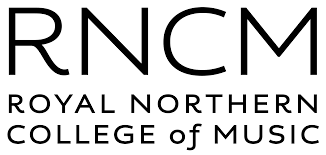
Royal Northern College of Music
Manchester
BMus (Hons) 4 years full time
Entry Requirements
All applicants must have passes at GCE A level (A2) in a minimum of two subjects at grade E or above, normally including music, and passes in three different subjects at GCSE level (grades A*-C/9-4) or acceptable equivalent.
Course Description
There are four main strands to the BMus course:
Detailed information about the BMus (Hons) course at the Royal Northern College of Music can be found HERE
Individual Singing Lesson?
Yes
How can I audition?
The Royal Northern College of Music operates a TWO STAGE audition process which applies to all applications:
Stage 1:
Apply via UCAS CONSERVATOIRES
Upload your video audition to the app ACCEPTD.
Step 2:
If you are successful in stage 1 you will be offered the opportunity to audition live on campus in Manchester. You can also opt to submit a recorded audition if you are unable to attend live.
Audition Requirements
STAGE 1 (Recorded)
Perform (from memory) THREE pieces of your own choice totalling no more than 12 minutes. These must be contrasting in period and style.
You should introduce each piece by giving only the title and composer. (Please also list your three pieces in your Acceptd application.)
You must also prepare and present a short spoken passage in English which can be either prose or poetry, or, indeed, an extract from a newspaper article. This is to assess your spoken voice, to see whether you are aware of pitch, pace, energy, resonance and so on. You do not need to perform this from memory.
Your submission should also include a two-minute introduction (either as a separate video or as part of your main audition recording), outlining who you are, why you would like to study with us, and a little about the repertoire you’re playing.
STAGE 2 (Live or online)
NB: All BMus applicants must take an online multiple choice theory test as part of their application; details for this, including deadlines and access instructions, will be sent by email following the on time application deadline.
Tuition Fees
Home Students: £9,250 per year
International Students: £26,000 per year
Key Dates
Application Deadline: 3 October 2022
Deadline for uploading Stage 1 Audition recording: 28 October 2022
Stage 2 Auditions: Held between 6 November – 17 December. Individual dates and times for Stage 2 Auditions will be sent via UCAS Conservatoires in October 2022.
How do I apply?

Royal Welsh Conservatoire of Music & Drama
Cardiff
BMus (Hons) 4 years full-time
Entry Requirements
RWCMD is committed to providing equal access opportunities to talented and motivated applicants from all backgrounds.
For all applications, we require evidence of the potential in the Principal Study to perform at a professional level, with good general musicianship and aural awareness.
We do not stipulate that any formal, practical music exams must be passed. However, as a guide to the minimum standard required for entry, instrumental and vocal candidates should typically demonstrate musical ability to meet the level of at least Grade 8 in Associated Board of the Royal Schools of Music (ABRSM) / Trinity College London / Music Teacher Board examinations.
A level Music is desirable, but not essential. However, we do require a knowledge of music theory at Grade 5 level (ABRSM or Trinity College London) as a minimum.
Selection to the BMus (Hons) Music course is typically based on the following process:
- Principal Study audition: Including aural and sightreading tests
- Interview and practical session: This will take place after the audition with the Head of Study and/or another member of senior staff, providing an opportunity to discuss and explore musical interests, ambitions and readiness for conservatoire-level study. There may also be a short one-to-one practical session to evaluate the applicant’s responsiveness to feedback and guidance.
- Online musicianship test: A diagnostic test to ascertain levels of experience and knowledge in core aspects of theoretical musicianship.
Candidates who are successful at audition/interview are usually expected to gain at least two A levels (grades A-E) or equivalent qualifications.
In every case, the minimum conditions attached to any offer of a place are based on individual applications/auditions.
Course Description
The Royal Welsh College of Music & Drama launched a new, flagship BMus course in 2022.
The programme emphasises collaboration and collaborative approaches in all aspects of activity, whilst also structured to offer each student a high level of support as an individual learner and future practitioner.
Core modules place students in a variety of real-world musical contexts from the outset of their training, while an extended range of module options in the third and fourth years enable students to build knowledge, skills and experience in areas relating to their personal and professional goals including performance, collaborative artistry, research, cultural innovation and entrepreneurship.
The course is delivered in a multi-disciplinary conservatoire setting, providing an immersive learning environment with key defining characteristics shared by all programmes of study at RWCMD. Students are integrated into a professional arts environment with world-class performance venues and a wide-ranging programme of public performances including guest recitals by some of the world’s leading performers. This, combined with specialist tuition from experienced professional practitioners, ensures that the expectations, opportunities and diversity of the professional arts and creative industries are embedded throughout the training.
There are five core modules which run across the four years of the BMus programme:
- Principal Study
- Integrated Musician
- Music & Society
- Engagement
- Collaboration
Further details about the BMus (Hons) programme at RWCMD can be found HERE
Individual Singing Lessons?
Yes
How do I apply?
The Royal Welsh College of Music & Drama operates a TWO STAGE application and audition process which applies to all applications:
STAGE 1:
All candidates will be required to submit a recorded audition in support of their application.
Once you submit your UCAS Conservatoires application you should submit your recorded audition via Acceptd
STAGE 2:
Following the assessment of the recorded submission shortlisted candidates will be invited to attend a further audition either online or in person.
Application & Audition Fees:
UCAS Conservatoire application fee: £26.40 (2022)
RWCMD Audition Fee: £68 for one principal study, £84 for two joint principal studies.
Audition Requirements:
Vocal auditions should be accompanied either live or using a pre-recorded accompaniment, but one piece may be unaccompanied if desired. You will need to prepare in advance THREE pieces of your own choice totalling not more than 12 minutes and contrasting in period and style, to be sung from memory. One piece should be sung in Italian.
Further detailed audition preparation guidance can be found HERE
Tuition Fees
Home Students (UK): £9,000 per year
Overseas Students: £23,860 per year
Important Dates
UCAS Conservatoire Deadline: 3 October 2022 (late applications accepted)
Deadline for submitting recorded audition to acceptd: 21 October 2022
STAGE 2 Audition Dates:
Auditions for candidates shortlisted from recordings submitted by the deadline will usually take place on weekdays (Monday – Friday) between 31 October – 9 December 2022.
Application Route
Apply via UCAS CONSERVATOIRES

Trinity Laban
London: Greenwich
BMus(Hons) 4 years full-time
Entry Requirements
- Grade 8 standard in Principal Study
- 3 GCSEs (including English Language) at Grade C or above
- Two A level passes (of which one should normally be Music) or Equivalent qualifications and/or relevant prior experience may be considered.
- Entry to the programme is dependent upon selection at audition.
Application Deadline
3 October 2022(for 2023 entry)
Course Description
Aimed at performers and composers with outstanding potential, creative flair, and a hunger for musical adventure, the BMus (Hons) programme will prepare you for the diverse demands of the music profession.
The BMus (Hons) is a modular degree centred on the core elements of Professional Studies and Academic Studies.
Key features:
Create music as a vocalist at a level that will prepare you to enter the profession on graduation
Establish a secure artistic identity and develop a range of sophisticated professional skills
Perform as a soloist, in small and large ensembles, to a diverse range of audiences
Gain an understanding of the music profession and its audiences in contemporary society
Develop collaborative, innovative and entrepreneurial skills
Develop your communication skills to a professional level as an artist through your voice
Engage audiences through informed discussion and written work
Audition Requirements
You need be prepared to perform two contrasting works. The panel will expect you to play for no longer than 15 minutes.
You may also be asked to work on a particular passage of your piece with the Head of Department.
At the end of your audition there will be a short interview when the panel will ask you to talk about your past training, achievements and about your musical aspirations. They will want to try to get you to know you better as a person and examine the breadth of your musical understanding. You should come prepared to talk about the music you listen to at home, concerts you have attended, music making opportunities you have had, etc.
Audition Format
In person or recorded.
Tuition Fees -2023/2024
UK: £9,250
International: £23,390
Application Route
Via UCAS CONSERVATOIRES. Institution code: T75. Course Code: 300F
